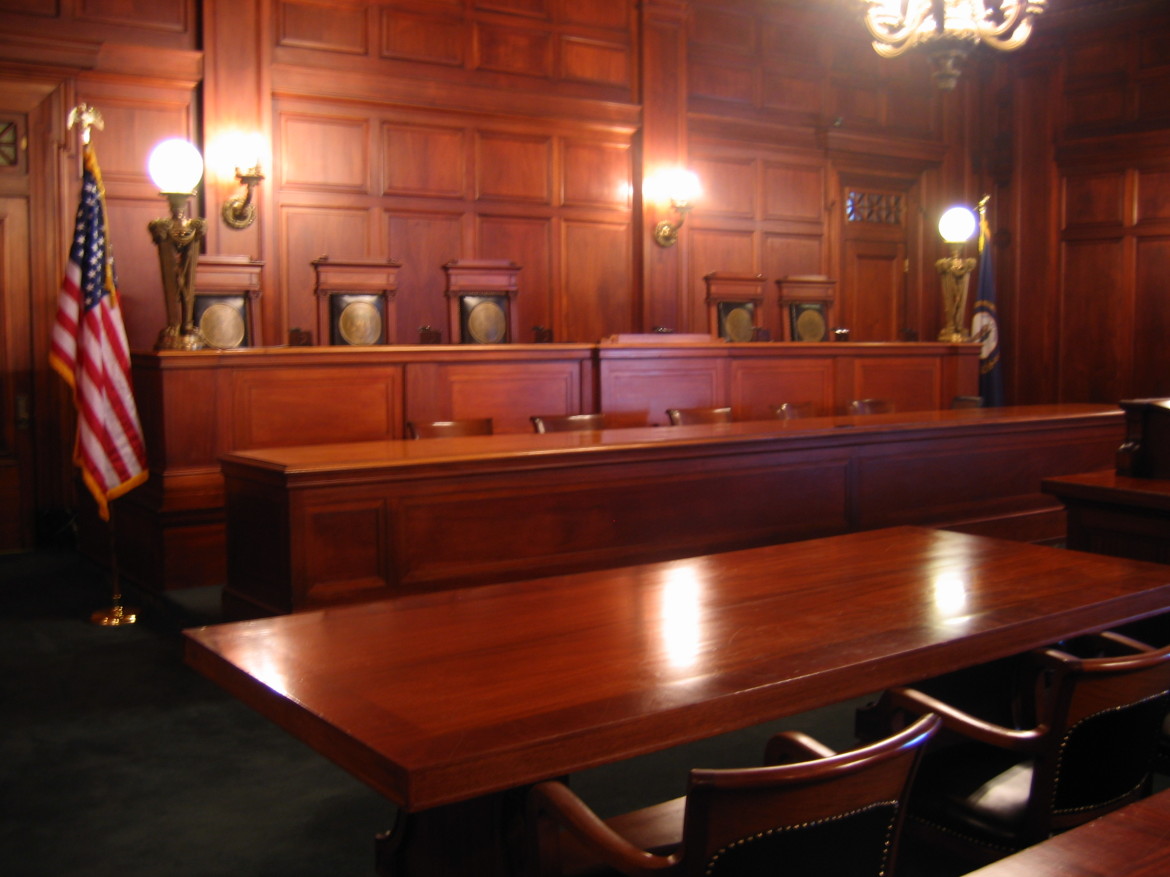
Kentucky Supreme Court chambers
I did “something stupid,” said Kentucky high school student N.C., admitting to his assistant principal and the school’s sheriff’s deputy that he gave two of his prescription pain pills to another student. He was not read his rights, and the officer subsequently charged him with illegally dispensing a controlled substance. N.C.’s attorney is arguing that the student should have been informed of his rights to leave, stay quiet or call an attorney.
N.C. was “in custody” when he sat in an office with Nelson County High School Assistant Principal Mike Glass and School Resource Officer Deputy Steve Campbell, talking about his empty prescription medicine bottle, argued Robert Strong, assistant public advocate. So the adults erred by failing the familiar Miranda warning: “You have the right to remain silent …”
“Given that the officer testified that the assistant principal was aware that N.C. had given some pills away before they interrogated him, the interrogation was a criminal investigation,” Strong wrote in his brief to the Kentucky Supreme Court. N.C. was not read his rights, so, Strong argued, the student’s statements to the two men should have been inadmissible in the criminal case against him.
N.C., whose age is not given, was sentenced to 45 days in adult jail, on hold pending the outcome of his appeal.
According to N.C.’s testimony in court records, he was recovering from tooth surgery and carried three prescription pain pills to school in the pharmacy bottle with his name on it. He gave two to another student and took one himself.
The empty bottle was found on the bathroom floor. But school rules say students must turn in prescriptions to the school nurse. Glass and Campbell brought N.C. into an office.
Glass did not know he was getting into criminal territory, his defense argues. “Glass was simply inquiring about the prescription bottle when N.C. spontaneously admitted that he had done something wrong by giving his last two pills to another student,” reads the brief by John Kelley, special prosecutor for the attorney general.
N.C. was not in custody, Kelly wrote in his brief: “[T]he case at hand was simply a school administrator looking into the possible violation of a school policy and not an investigation of criminal activity.”
The Kentucky circuit court agreed with that reasoning, triggering NC’s appeal to the state Supreme Court. There’s no date set yet on an opinion.
Other states have tackled similar questions. One case made it to the U.S. Supreme Court in 2011.
J.D.B., a 13-year-old North Carolina student, was seen at school in possession of a camera recently reported stolen from an area home.
He was brought into a room with school administrators, the school’s police officer and a police investigator. The student first denied involvement, but then confessed on the officials’ urging and warning about the prospect of juvenile hall. J.D.B. had not been given his Miranda warning. The youth’s attorney thus argued that the boy’s statement should have been thrown out of the subsequent criminal proceeding.
The U.S. Supreme Court did not rule on the question of whether J.D.B. was in custody, instead sending it back to North Carolina courts and directing them to answer it “this time taking account of all of the relevant circumstances of the interrogation, including J.D.B.’s age at the time.”
It is a “commonsense reality,” wrote Justice Sonia Sotomayor, “that children will often feel bound to submit to police questioning when an adult in the same circumstances would feel free to leave.”
In other words, police should consider a person’s age, and perhaps childish view of the world, when deciding when to read Miranda rights.
